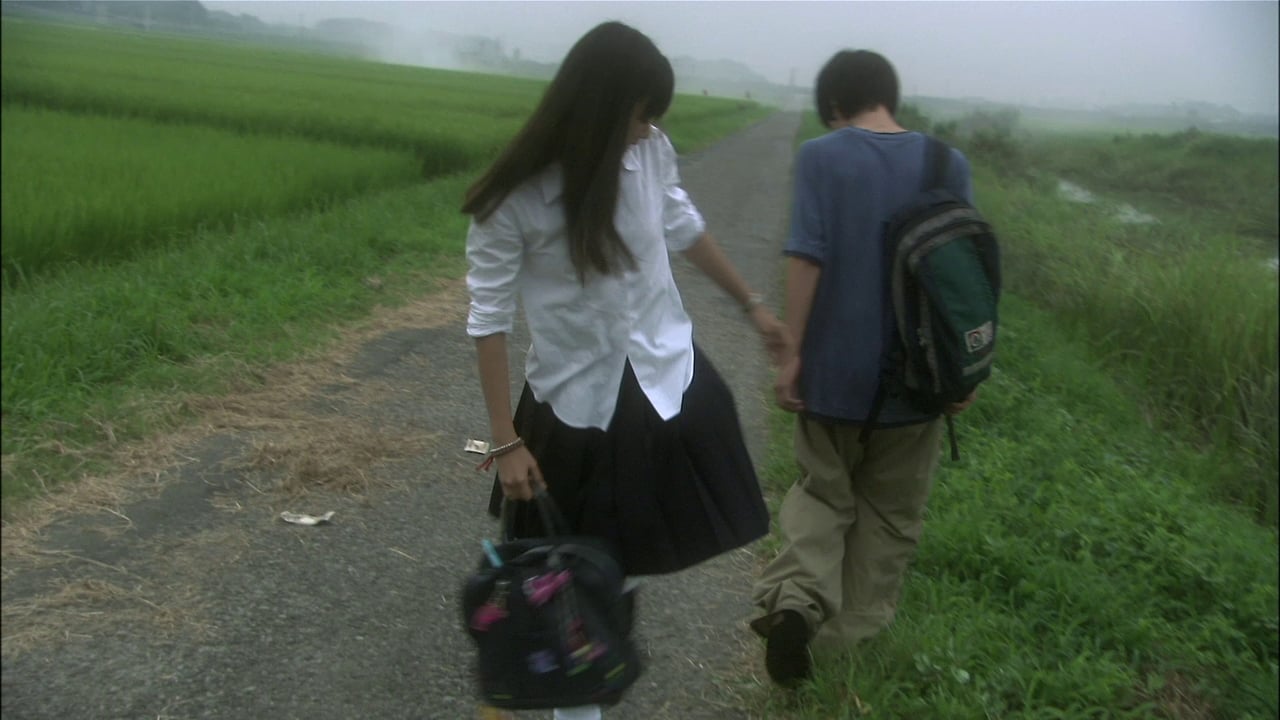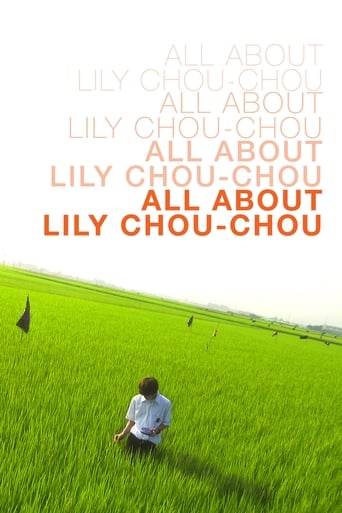

the audience applauded
... View MoreAmateur movie with Big budget
... View MoreIt's an amazing and heartbreaking story.
... View MoreIt's a feast for the eyes. But what really makes this dramedy work is the acting.
... View MoreIf there ever was a production that fit the definition, look and feel of a cult film then All About Lily Chou-Chou would be it. Filmed in Ashikaga in Tochigi Prefecture this film did well upon release in Japan in 2001, but it was the subsequent export, mystique and international fandom that have kept the ethereal film alive. There are many ways to describe 'Lily Chou-Chou Is Everything' (Riri Shushu No Subete in Japanese) and none of them would point to anything remotely mainstream or Hollywood-esque. It is a feel-bad movie that is nihilistic to the extreme, original and catches one off-guard and, independent of that depiction, there is a reasonable debate (in my mind anyway) as to whether it is good. The story revolves around the fanatics of the mythical artist Lily Chou-Chou whose art, to her fans and members of a website whose chat room message are integral and elucidating, is beyond anything merely terrestrial and is often described as embodying the 'ether.' Her fans live and breathe within the ether firstly because she is that sublime and secondly as an escape mechanism from the toll it takes to be a teenage high school student of fourteen in modern Japan. The students are perpetrators and victims of bullying, oppression, alienation, angst, prostitution, corruption and disregarded by a hopeless cadre of teachers and parents. Banish those images of Japan as an orderly and organized society with a disciplined and respectable school system. To be fair, however, whether anyone - including myself - really 'gets' this film is another matter. It comes across as lifelike, and partly due to the documentary-style camera-work which is most observable in the Okinawa and kendo sequences, but it is deliberately cryptic, open to interpretation and even ends without something as definite as one is expecting - perhaps as a nod to life in modern society in general. Incidentally, the travel to Okinawa, and its aftermath, is the most unrealistic. The money may have been procured through ill-begotten means, but what about the time, opportunity and parental permissions? Would one subsequently change so drastically? As if there was not enough confusion the film incorporates flashbacks. The pompous and simultaneously enlightening All About Lily Chou-Chou is filmed long and like a stream of consciousness and, if nothing else, will make one hate the younger generation and its enablers. I always thought striking imagery, penetrating story lines and intense music make for perfect films - think Blade Runner or Kill Bill or Lost in Translation - and this film has it all. The added element, however, is the extra disturbing content for which there is no preparation. On the flip side, All About Lily Chou-Chou's music is a success and laudable. With the film revolving around a recording artist it might be expected, but the alternative ambiance of Lily, as performed by the as-of-then unknown Salyu, is perfect for the concept of the 'ether' and for the suffocating world in which the anti-heroes live. While we are on the subject the film and Lily were inspired by Chinese singress Faye Wong. Lily/Salyu's Kaifuku No Kizu was included/mumbled in the film Kill Bill to boot. French composer Debussy's work is also prominently featured. Did I learn anything or know anything definitive from this film? Well, datsu or Needlefish is called Shijar in Okinawa. North is 'nishi,' east is 'agari,'south is 'fue' and west is iri.' Everything else is open to interpretation... On a good day Japan bewilders most people. All About Lily Chou-Chou out-bewilders the bewilderment.
... View MoreWith Debussy's masterpiece and some wonderful music, this film has surpassed the meaning of "movie", it's not just a entertainment anymore, instead, it has taken over a part of my whole life. If one really appreciates and ponders what this film really represents and the message the director trying to convey, then after watching this film will come a extremely feeling of the blues, which can make you feel down, even make you want to cry.This masterpiece is definitely worth watching. Every time I try to escape away from the reality, i'll watch this, because somehow, i can find myself through this.
... View Morestrange, weird, maybe scary Strange and weird in the way how the director portrayed the movie. Every time when the screen show RELOAD and starts typing i feel like my head is spinning. Kind of brainwash by the movie. LOL.What scare me the most is I'm not used to that kind of bullying people.It's just never crossed my mind. They are just only 14 for the God sake. It's hurt me though to see how Hoshino can do all the bad thing towards his friend. What with the rape, make one of the girl to be prostitute, ask your friend to masturbate, to naked in the mud. Part of me really approved how the movie end (even though that's not the way to teach bad people).But to be frank, there's something about the film that make me glued to the screen. It's good movie but in a strange, weird and scary way.
... View MoreIt's my first time to watch movies by Shunji Iwai. I'm so deeply moved and hurt by the movie. It is so beautiful and cruel that I think adolescent should not see it. It likes a knife through my heart. Thanks Shunji Iwai, it's a perfect movie that no one can expect to see a few in his life. I have expected to see a warmhearted movie about a lonely boy, but this movie give me far more than that. I'm so attracted by the actress who acted the girl who died. She is just the kind of girl I loved and her tragedy hurt me a lot. The performance of the actors are very good although they are young and lack of experience. And the music is very unique and like it is said in the movie,it's like a religion.
... View More